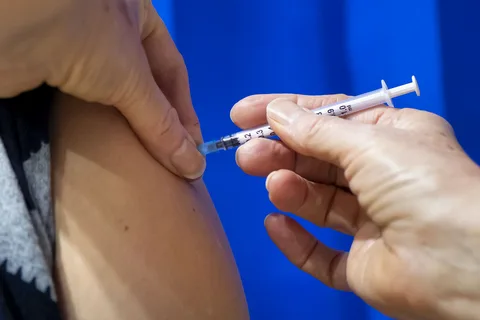Calder Biosciences, Inc., a pioneering next-generation vaccine company, has recently unveiled its innovative ‘3D Vaxlock’ platform technology with promising implications for combating the Respiratory Syncytial Virus (RSV). In a groundbreaking study published by the company, Calder’s 3D Vaxlock technology has demonstrated an unprecedented 11-fold increase in immune response potency compared to conventional industry standards when applied to the RSV F protein as a vaccine immunogen.
The application of Calder’s cutting-edge technology not only significantly enhances the vaccine’s efficacy but also extends its shelf-life when stored at refrigerated temperatures, thereby streamlining the distribution and delivery process. The enhanced immune response is characterized by a notable increase in the production of antibodies that effectively neutralize the virus upon contact, subsequently preventing infection. Moreover, the vaccine has shown improvements in the quality of immune responses generated, with a higher proportion of produced antibodies demonstrating the ability to neutralize the virus.
The year 2023 witnessed notable advancements in RSV prevention, with GSK and Pfizer achieving licensure for the first RSV vaccines, Arexvy and Abrysvo, to be used in the elderly and maternal vaccination programs. While these milestones have significantly contributed to public health, the recently published data by Calder suggests that there is a substantial opportunity to enhance potency particularly for the population aged 75 and above.
Dr. Florian Schödel, a member of Calder’s Scientific Advisory Board, emphasizes the critical need for vaccines that can offer robust protection to individuals aged 75 and above, as well as vulnerable populations. The manuscript in Nature Communications highlights the efficacy of Calder’s high-dose RSV vaccine in eliciting immune responses in aged individuals comparable to those observed in younger counterparts.
Calder’s 3D Vaxlock technology involves the creation of zero-length carbon-carbon bonds between tyrosine residues within target vaccine immunogens. This innovative approach leverages structure-based design and a unique bioprocess to preserve the 3D protein structure essential for inducing optimal immune responses, leading to superior protection outcomes.
Chris Marshall, the co-founder, and CEO of Calder Biosciences, underscores the transformative potential of this stabilization technology in unlocking the full capabilities of protein vaccines. The irreversible nature of dityrosine bonds, catalyzed post-protein folding, presents a significant advantage over traditional disulfide bonds, ensuring structural integrity and enhanced efficacy of the vaccine.
Beyond the RSV program, Calder intends to extend the application of its technology to Universal Influenza and Epstein-Barr virus vaccines, recognizing the imperative of vaccination in safeguarding public health post-COVID era. Mark Yondola, the co-founder, and CSO of Calder, asserts that their technology is poised to revolutionize the vaccine landscape by delivering safer and more potent vaccine formulations.
Furthermore, Calder aims to incorporate this technology into protein engineering endeavors to enhance thermostability of subunit vaccines, biologics, and other targets, underscoring their commitment to advancing vaccine development and public health objectives.
*Note:
1. Source: Coherent Market Insights, Public sources, Desk research
2. We have leveraged AI tools to mine information and compile it

